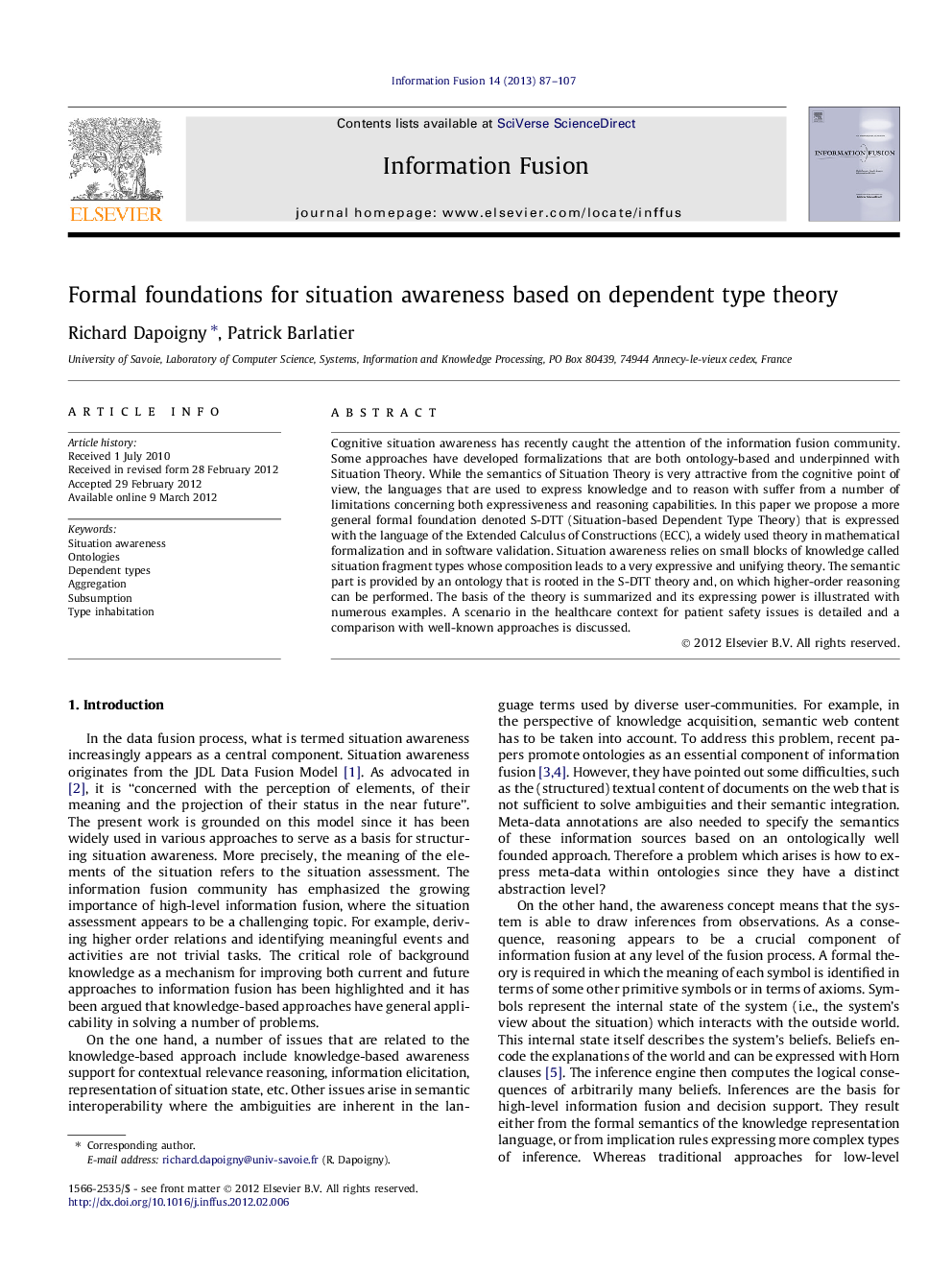| Article ID | Journal | Published Year | Pages | File Type |
|---|---|---|---|---|
| 528215 | Information Fusion | 2013 | 21 Pages |
Cognitive situation awareness has recently caught the attention of the information fusion community. Some approaches have developed formalizations that are both ontology-based and underpinned with Situation Theory. While the semantics of Situation Theory is very attractive from the cognitive point of view, the languages that are used to express knowledge and to reason with suffer from a number of limitations concerning both expressiveness and reasoning capabilities. In this paper we propose a more general formal foundation denoted S-DTT (Situation-based Dependent Type Theory) that is expressed with the language of the Extended Calculus of Constructions (ECC), a widely used theory in mathematical formalization and in software validation. Situation awareness relies on small blocks of knowledge called situation fragment types whose composition leads to a very expressive and unifying theory. The semantic part is provided by an ontology that is rooted in the S-DTT theory and, on which higher-order reasoning can be performed. The basis of the theory is summarized and its expressing power is illustrated with numerous examples. A scenario in the healthcare context for patient safety issues is detailed and a comparison with well-known approaches is discussed.
